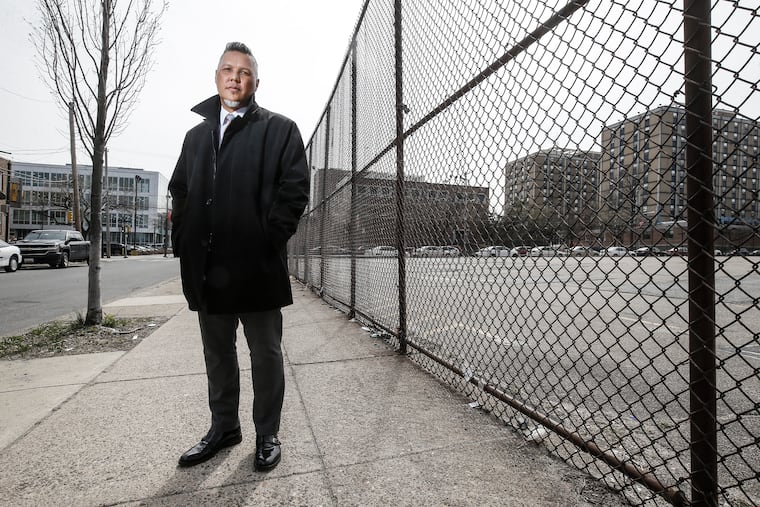Temple University’s education dean, subject of faculty complaints, will step down in May
Gregory M. Anderson said in an email to staff that he plans to take a sabbatical and then work on the development of a new research program focused on college access and inclusion.

The dean of Temple University’s college of education who had been targeted by faculty complaints announced Wednesday that he will step down in May.
Gregory M. Anderson, who will have led the school for nine years when he leaves the post, said in an email to staff Wednesday morning that he plans to take a sabbatical and then work on the development of a new research program at Temple focused on college access and inclusion.
“The timing of my decision is not just right for me, it is also right institutionally, financially and academically for the college,” Anderson wrote. “At Temple University and at the School District of Philadelphia, recent or impending changes in senior executive leadership furnish a rare opportunity for the college to collaboratively reset and strategically align itself to a new path going forward.”
» READ MORE: Investigation finds no violation of law or policy by education dean
Provost Gregory Mandel in a separate email said that professor James Earl Davis would serve as interim dean and that Anderson would make no significant changes over the next few months without consulting Mandel.
About a year and a half ago, roughly half of the 70 full-time faculty in the college signed a letter raising issues about Anderson’s leadership. They said faculty were “deeply concerned about faculty members’ loss of voice in our own college, and about a growing climate of fear, mistrust, and intimidation.”
In interviews with The Inquirer a year ago, 10 current or former Temple faculty members said that, since arriving, Anderson had transferred faculty to departments in which they didn’t have expertise and targeted those who were critical of his leadership and tried to force them out. Anderson lost his temper and berated employees at meetings, they said, and created a hostile work environment where employees, especially junior faculty, were afraid to speak their minds.
» READ MORE: Faculty, alumni criticize Temple's decision to end its master's in urban education
Also in 2020, some faculty and alumni criticized the college’s decision to end its master’s in urban education program, which they worried would lessen emphasis on a topic that deserves more focus and signal a weakening of commitment to the needs of big urban districts, such as Philadelphia, where many of the program’s alumni work.
An outside investigation into the complaints commissioned by Temple found no violation of law or policy by the dean or anyone else, the university said in July.
“Nevertheless, the results demonstrate a need for improvement in the culture and environment within the [college],” former provost JoAnne A. Epps said in a statement to the college’s faculty and staff at the time.
» READ MORE: Prompted by complaints, Temple taps law firm to probe complaints about education college leadership
Sara Goldrick-Rab, a professor of sociology and medicine who complained about Anderson’s “hostile behavior” and successfully requested a transfer out of the education college to the school of medicine, said she was pleased to hear that Anderson would no longer be dean.
“This action does a lot to restore my faith that eventually Temple does the right thing,” Goldrick-Rab said. “I’m so grateful to Provosts Epps and Mandel. It makes me much more committed to stay here long term.”
Will J. Jordan, an associate professor of urban education who has been critical of the dean and who is president of Temple’s faculty union, said Mandel had been listening to faculty concerns since he became interim provost last summer and got the permanent appointment in December.
“It was just a question whether or not his listening and commiserating with us were going to lead to action,” Jordan said. “Today, we did learn that it did lead to action.”
Neither Mandel nor Anderson would comment beyond their statements to the faculty and staff.
Faculty also applauded the appointment of Davis, whose work focuses on “gender and schooling outcomes; men, boys and masculinity; sociology of higher education; and applied research methods,” according to his faculty page. Davis has worked at Temple for more than 11 years and served as interim dean in the past. He has agreed not to apply for the permanent dean’s post, Mandel said.
“He unites people,” said Maia Cucchiara, an associate professor of teaching and learning. “He is wise. He is deeply respectful of all different types of research and of all the different talents people bring to the research and he has my fullest confidence.”